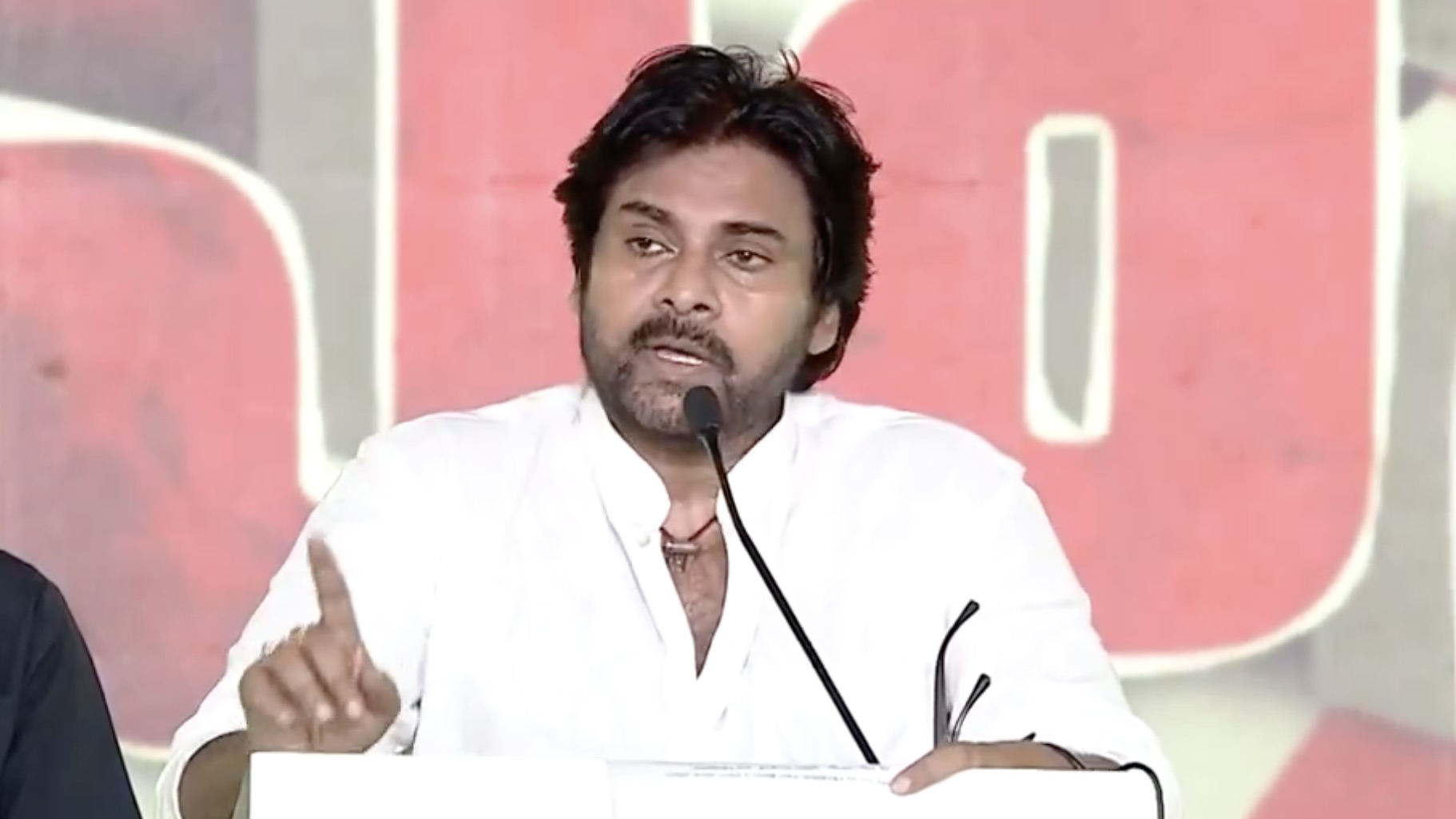Jana Sena, despite its performance in the 2024 elections in alliance with the TDP and BJP, still lacks the deep rural network and localised leadership that its rivals command.
Published Aug 31, 2025 | 5:00 PM ⚊ Updated Aug 31, 2025 | 5:00 PM

Andhra Pradesh Deputy Chief Minister and Jana Sena Party chief Pawan Kalyan.
Synopsis: Andhra Pradesh DyCM and JSP chief Pawan Kalyan has unveiled a new organisational blueprint for his party, ostensibly aiming to professionalise the party apparatus and build up its grassroots network to ensure long-term sustainability. Dubbed the ‘Trishul Strategy’, Kalyan pitched for 33 percent reservation for women in party posts, the expansion of sectoral wings, and a move beyond personality politics.
Andhra Pradesh Deputy Chief Minister and Jana Sena Party (JSP) chief Pawan Kalyan has unveiled a new blueprint for his party, the “Trishul Strategy”, which he said would be rolled out starting from Dussehra.
Addressing a large gathering of party workers at the “Senatho Senani” programme in Visakhapatnam on Saturday, 30 August, Kalyan described the initiative as a turning point in the party’s journey, a decade after its launch, one that is designed to provide recognition to committed workers, nurture grassroots leadership, and ensure security for cadres.
The symbolism of the “Trishul” was hard to miss. Having worked to carefully reinvent his image as a crusader for Sanatana Dharma, the “trishul” fits his ever-evolving political ideology all too well.
Meanwhile, the initiative itself is being seen as an attempt to transition Jana Sena from a movement anchored in Kalyan’s personal charisma into a structured political organisation with long-term survival potential.
In his speech, the matinee idol also made no secret of his national ambitions. “Let us build a new army that works for the nation. Every one of you must become a force in this mission,” he said.
“Every committed member who begins at the grassroots should have the chance to evolve into a leader. That is our path, our Trishul, our Jana Sena.”
At the heart of the new plan is a membership drive, with the slogan “Membership to Leadership”.
The strategy is being seen as an attempt to translate mass appeal into a sustainable, cadre-based organisation. Jana Sena, despite its performance in the 2024 elections in alliance with the TDP and BJP, still lacks the deep rural network and localised leadership that its rivals command.
According to Kalyan, the party will move away from personality-driven politics and build a system where responsibility is linked to capability.
Every active member will be issued a membership ID, tied directly to the central office, with leadership training and ideological workshops forming a part of the grooming process.
“Leadership is not a post but an honour earned through service and struggle. Those who dedicate themselves to the people, not posts, are the ones who will rise,” Kalyan said.
Kalyan, who currently holds the Panchayat Raj and Rural Development portfolios, pledged to devote at least four hours daily to party work in addition to governance duties.
He admitted that while coalition governance remains a priority, his personal goal is to build Jana Sena’s organisational muscle by 2029 when the next elections arrive.
The JSP president also underlined women’s empowerment as a priority.
“Women can no longer remain in the background. We want strong, independent leaders who think and act on their own,” he said, promising 33 percent reservation in the party’s wings.
He also announced plans to expand sectoral wings such as labour and farmers, and create opportunities for cadres to work in their areas of interest.
Political observers see this as an attempt to professionalise the party apparatus and reduce its dependence on a single leader’s charisma.
Furthermore, Kalyan highlighted Jana Sena’s introduction of accident insurance for party workers in 2020, describing it as a pioneering initiative.
He also insisted that ideological strength, not just electoral alliances, would carry Jana Sena forward.
“If we stand united with conviction, one day Jana Sena will grow into a national force,” he said, citing interest from sympathisers in Tamil Nadu, Karnataka, Maharashtra, and Odisha.
Reflecting on the party’s trajectory since its inception in 2014, Kalyan noted that Jana Sena has grown from 150 initial members to over 12 lakh active cadres.
He credited workers and women supporters as “unsung heroes” who helped the party secure 21 Assembly and two Lok Sabha seats in 2024.
(Edited by Dese Gowda)
